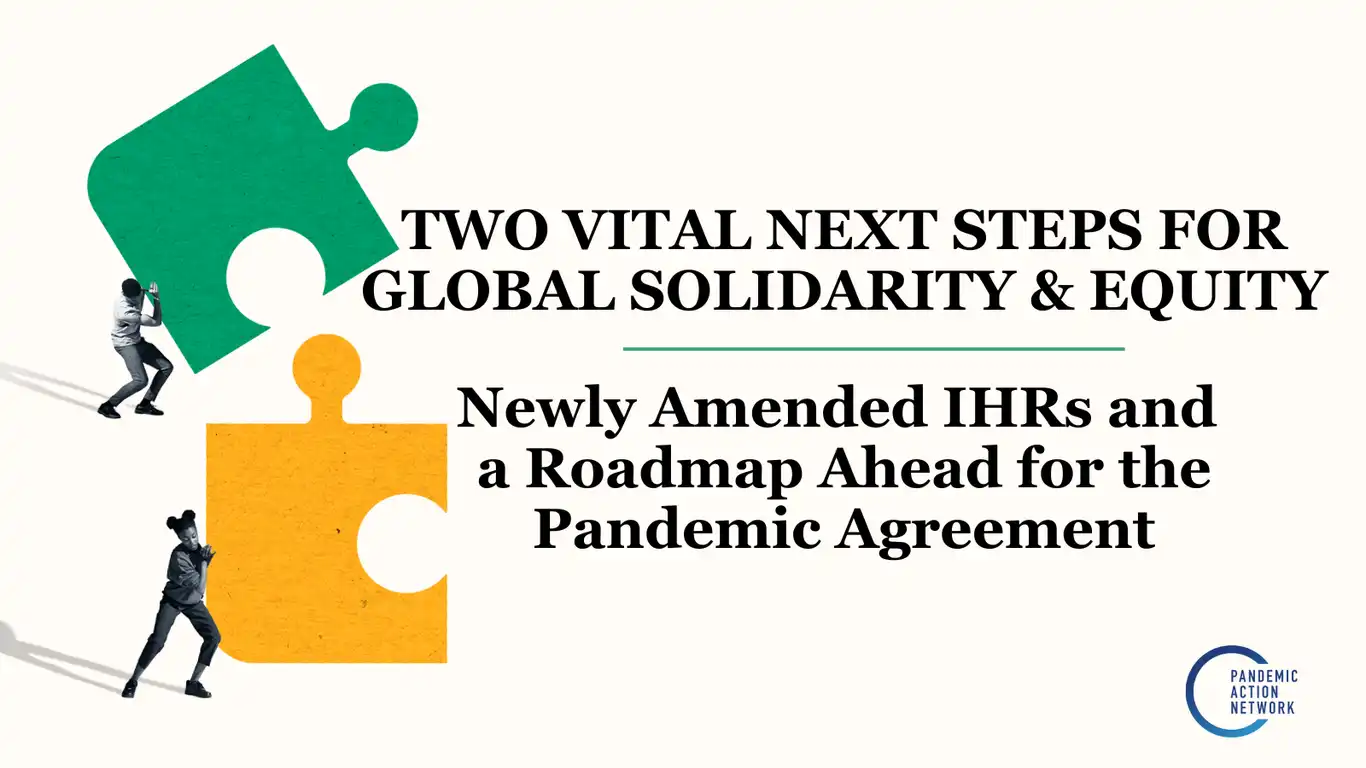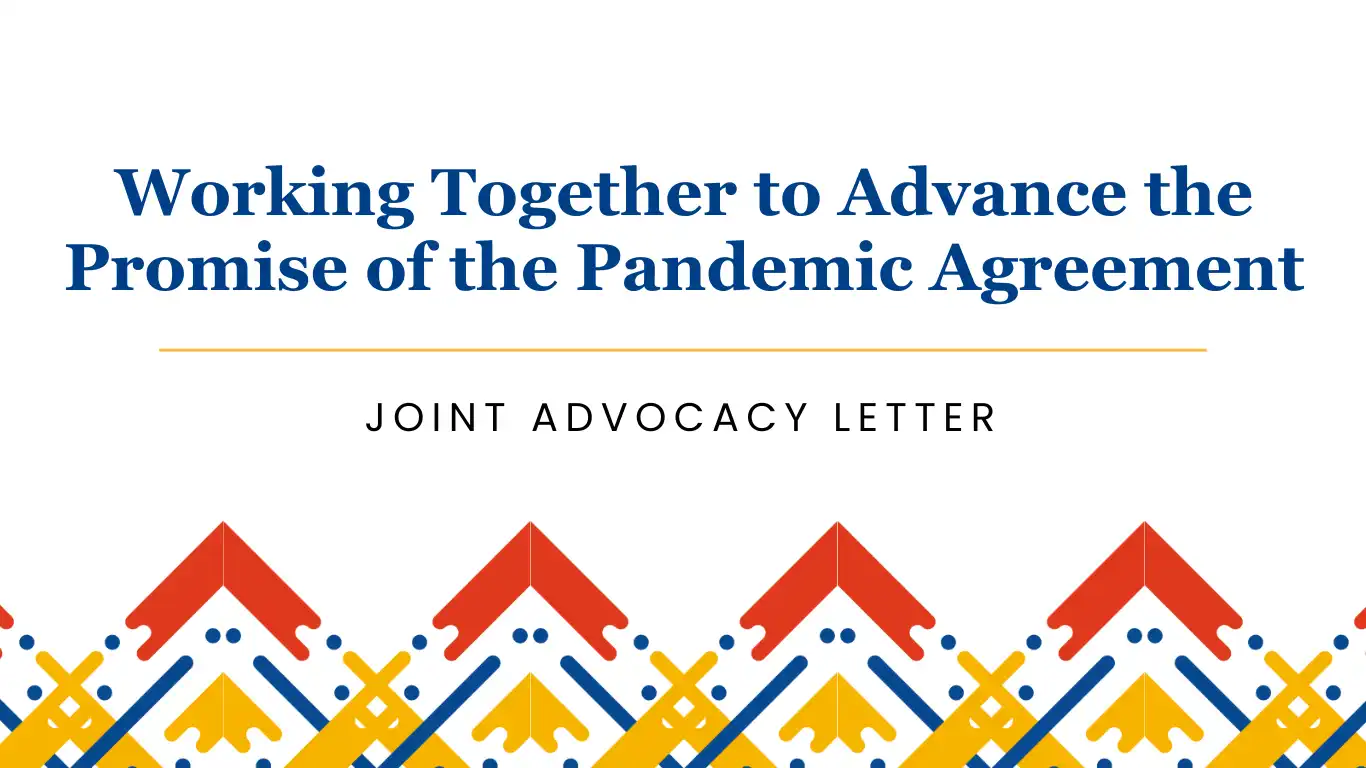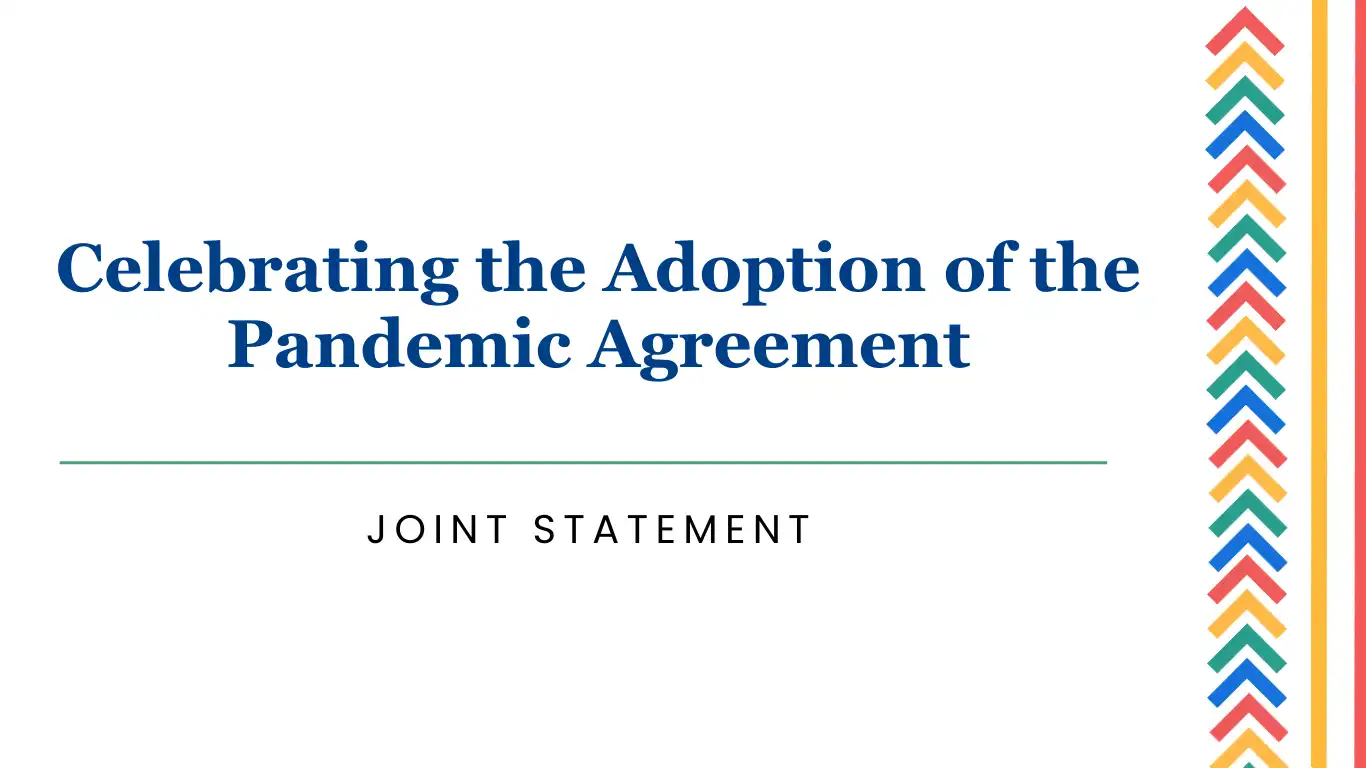The 77th World Health Assembly (WHA77) wrapped up a whirlwind policy session by advancing two key international processes — wrapping up the amendments of the International Health Regulations (IHRs) and setting out a roadmap to bring the pandemic agreement to a conclusion. Each process helps ensure the world is better equipped to prevent, prepare for, and respond to pandemic threats. Continued high-level attention and prioritization is required to turn these advancements into meaningful and sustainable change for the global good.
New amendments to the IHRs
In a significant and historic milestone, World Health Organization (WHO) Member States reached agreement on core amendments to the 2005 IHRs that help set global coordination parameters, as well as key steps countries should take to be more prepared for pandemic threats.
Chief among the IHR amendments are measures to:
Define a “pandemic event,” which will help WHO and countries understand key criteria and response triggers as a public health emergency of international concern transforms, or could transform to a more serious pandemic threat — a situation with large scale health, social, and economic implications.
Advance equitable access to health products during an emergency, including creating a clearer role for WHO to help facilitate equitable medical countermeasures access during an active emergency, ensuring existing pandemic prevention, preparedness, and response (pandemic PPR) financing mechanisms are regionally representative and responsive, and establishing a Coordinating Financial Mechanism “to equitably address the needs and priorities of developing countries, including for developing, strengthening and maintaining core capacities.”
Ensure increased accountability and funded implementation of the IHRs at the national level, including working with Member States to designate National IHR Authorities to coordinate IHR implementation within, and between countries, encouraging Member States to maintain or increase domestic resources to achieve IHR priorities, and establishing a States Parties Committee for the Effective Implementation of the International Health Regulations to encourage timely and effective implementation.
These, and other measures included in the IHR amendments, are important reflections on lessons learned from the COVID-19 pandemic, and notable steps to help countries make meaningful progress toward systems that are better equipped to detect, prevent, and respond to emerging disease threats, and to propel coordinated global action.
A roadmap ahead for the pandemic agreement
After several intense weeks of negotiation which tested the limits of multilateral arbitration, Member States agreed to continue negotiations on a pandemic agreement, extending the Intergovernmental Negotiating Body (INB) mandate to negotiate a pandemic agreement by WHA78 in May 2025, or earlier if possible. This was welcome news after reports that progress on the agreement might be irrevocably stalled — it was heartening to see clear Member State consensus that continued negotiations are important, and that there is political will to advance a meaningful agreement that helps better protect the world from pandemic threats.
Member States will convene in July 2024 to decide on modalities for an extended INB, such as decisions on who will co-chair, what the process will look like, and how negotiation milestones will be set out. We encourage negotiators to build on lessons learned from the INB process to-date, including centering global equity in all priorities, ensuring the process serves all countries — including smaller states with smaller delegations — and explicitly engaging civil society and other key stakeholders at every stage of the process.
It remains critical that Member States work together to advance a robust international agreement that addresses challenges exposed during the COVID-19 pandemic, builds global solidarity, and enshrines equity for all people, everywhere. We continue to urge all parties to work expeditiously to reach a meaningful agreement that works for the good of humanity and serves as a floor, not a ceiling, for key targets and commitments. The next pandemic is “when,” not “if,” and we need action — not rhetoric — to change the status quo and protect our shared health and wellbeing.



